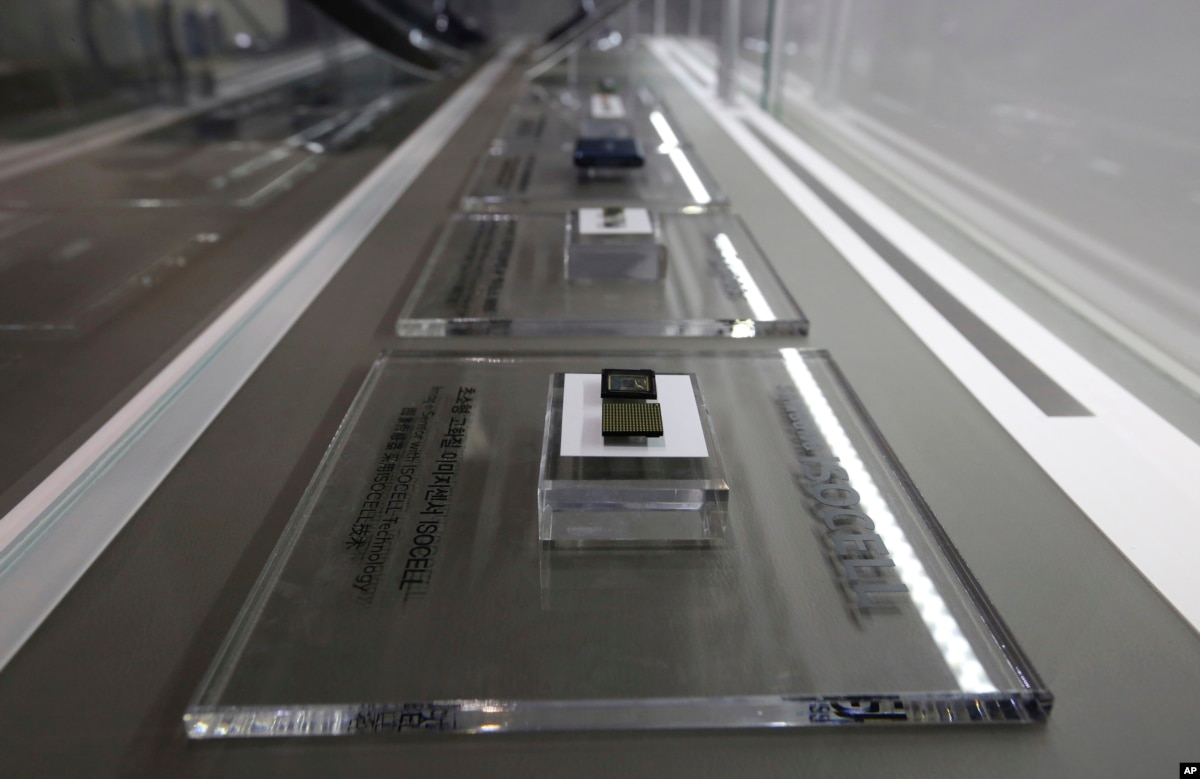
Juhyun Lee contributed to this report.
SEOUL -- As U.S. President Donald Trump intensifies his trade battle with China, one of the hardest-hit countries could be South Korea.
Asia’s fourth-largest economy, South Korea is especially vulnerable to the tariff war because of its reliance on foreign trade -- in particular, exports to its two biggest trading partners: China and the United States.
After U.S.-China trade talks broke down, Trump last week raised tariffs on $200 billion worth of Chinese imports, and threatened to do so with $300 billion more. China retaliated with tariffs on $60 billion of U.S. goods.
The trade war escalation, which rattled markets and threatened to hold back global growth, comes at an especially bad time for South Korea, whose economy unexpectedly contracted in the first quarter.
“South Korea is particularly vulnerable,” says Xu Xiao Chun, an economist who monitors South Korea for Moody’s Analytics. “It’s not inconceivable that you could see a second consecutive quarter of contraction of GDP, which would make it a technical recession.”
Trade war exacerbates tech woes
As the world's leading producer of memory chips that go into consumer electronics, such as cellphones and computers, South Korea benefited from years of rapid and consistent growth in the global smartphone market.
But global demand for smartphones has plateaued. That, combined with a slowdown in China and sluggish global growth, has hurt South Korea’s export-driven economy.
In April, South Korea’s exports declined for the fifth consecutive month, falling 2% compared to the same period a year earlier.
“South Korea’s economy was already going down the wrong path... but the latest escalation in the trade war really puts a spanner (obstacle) in the works,” Xu said.
South Korea was always likely to be hurt by the U.S.-China trade war just by virtue of its proximity to China, its biggest trading partner and top export destination.
South Korea’s exports to China could be cut by about $1.3 billion a year, said An Sung-bae with the state-run Korea Institute for International Economic Policy.
But the U.S.-China tariffs also pose a more specific threat to South Korea’s crucial semiconductor industry.
Here’s how it works:
South Korea sends semiconductors to China, where they are placed into smartphones and other electronics. China then ships many of those assembled products to the United States.
Trump’s tariffs could drastically raise the price of those electronics. For example, the cost of an iPhone XS could go up by around $160 if Trump follows through on all his tariff threats, one analyst at Morgan Stanley estimated.
Those higher prices would result in fewer shipments of electronics from China to the United States. Which means South Korea would be selling a lot fewer semiconductors to China.
That could put a major dent in South Korea’s economy, since semiconductors make up nearly half of its total shipments to China.
“Companies that mainly target the Chinese market will suffer... and the South Korean export business relies heavily on the Chinese market,” said Mun Byung-Ki, a senior researcher at the Korea International Trade Association.
A bright spot?
But some analysts say the situation may not be that dire. One reason: even if South Korean exports to China decline, it may make up the gap by shipping more products to the United States -- a situation that could potentially provide a major boom for South Korea’s tech industry.
Alex Holmes, a Singapore-based analyst at Capital Economics, says that already may be happening. Though South Korea's overall export numbers are suffering, its shipments to the United States are growing, he says.
That’s particularly the case for Korean electronics that fall under U.S. tariffs. Those tariffed goods have well out-performed non-tariffed items, Holmes says, “which suggests that U.S. companies have already switched suppliers as a result of tariffs.”
The increased shipments to the United States almost cover the equivalent hit South Korea has taken as a result in the falling Chinese demand, Holmes adds.
Manufacturing shift?
The tariffs could also have a long-term impact on manufacturing in Asia, as companies shift their production bases away from China as a way to shield themselves from the trade war.
A growing number of Asian companies, including some South Korean memory chipmakers, have already begun shifting their manufacturing centers to fast-growing and cheaper countries in Southeast Asia.
“If South Korea wants to find cheaper factories in say Vietnam or one of the ASEAN countries, it could make its money back or potentially even grow more than it would have if it relied on Chinese manufacturing,” Xu said. "But those sort of actions take a lot of time, a lot of capital, and there is a lot of risk involved.”
With no end in sight to the U.S.-China trade tensions, it’s a pattern that could be repeated, threatening China's reputation as a low-cost production base.
“The knock-on effect of this trade war will be to locate a lot more production capabilities in other countries in Asia,” Xu said.
South Korea Waits Out US-China Trade War
Baca Selanjutnya
Bagikan Berita Ini














0 Response to "South Korea Waits Out US-China Trade War"
Post a Comment